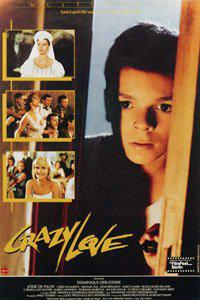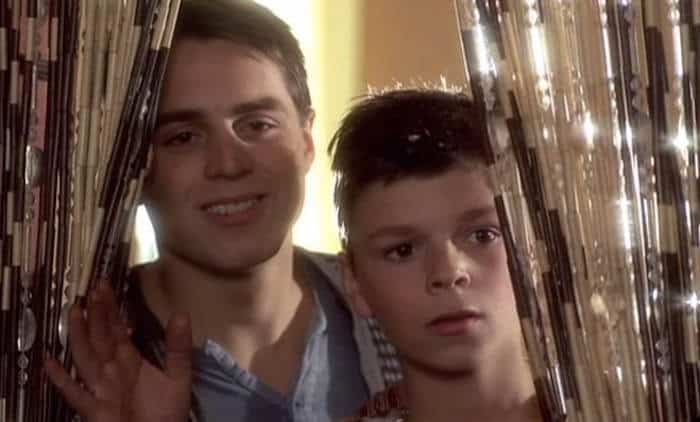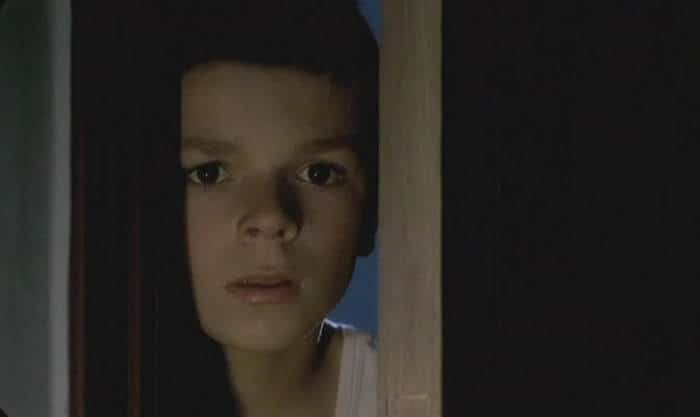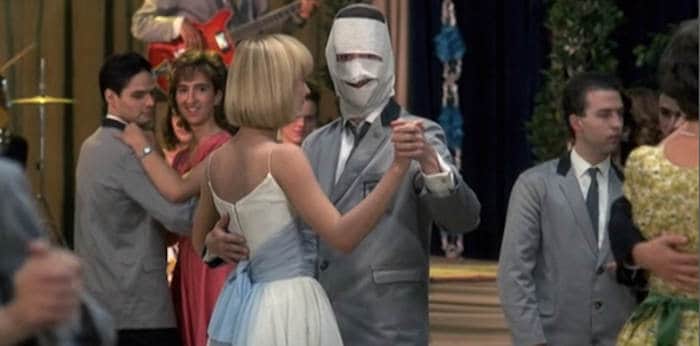
 With a script influenced (and co-written) by German-American poet and novelist Charles Bukowski, in Crazy Love one would expect a distinctive and peculiar cinematic experience.
With a script influenced (and co-written) by German-American poet and novelist Charles Bukowski, in Crazy Love one would expect a distinctive and peculiar cinematic experience.
The movie opens in a remote village in Belgium, where 12-year-old Harry Voss (Geert Hunaert) enjoys a movie at the local cinema. Wide-eyed and filled with awe, Harry allows the moving pictures to take him to a fairy tale world inhabited by a princess and brave knights fighting for her love.
Harry decides that such magic should exist in the world surrounding him until an older friend makes fun of the romantic fantasies of the little boy. That’s followed by an improvised sex-ed class diluted with explanations of what “everyone is really after”. The “lessons” are followed by practice sessions as the two friends visit a local amusement park with one goal: a first kiss for Harry and maybe something more. But thing’s don’t go as planned…

The second act of the narrative takes us several years into the future, and we see Harry, now played by Josse De Pauw, as a high school senior. Life has not treated him well, as his face (and body) is covered with a horrid case of acne. He has discovered the meaning behind love, but sharing it is quite another matter. In the third and final act of the film, we see Harry as an adult with a personality shaped by all the experiences and misfortunes of his life.
The story’s three-act structure helps define this Coming-of-Age narrative. Act 1, focusing on Harry as a boy (about 30 minutes long), is undoubtedly the part of the film that will appeal most to fans of the Coming-of-Age genre, thanks to the poignant idealistic point of view of the young Harry.

Geert Hunaert’s performance is top-notch. His facial expressions, from cheerfulness to shyness, curiosity, and awe, make his character true to life, simpatico, and easy to associate with.
That’s probably why the events in the second and third acts come across as shocking. On a personal level, I was able to associate with his older self, having chased love — aided by poems and ideals — only to realize that in real life, princesses often choose the brute rather than the knight.
 The film’s cinematography impresses with its attention to detail and skillful use of tracking shots and light, used for emphasizing a setting or an emotion. The mood differs in the three acts of the narrative – and the photography morphs to follow. The music accompaniment, both diegetic and non-diegetic, features live performances that not only sound great, but also reflect on and enhance the events on screen.
The film’s cinematography impresses with its attention to detail and skillful use of tracking shots and light, used for emphasizing a setting or an emotion. The mood differs in the three acts of the narrative – and the photography morphs to follow. The music accompaniment, both diegetic and non-diegetic, features live performances that not only sound great, but also reflect on and enhance the events on screen.
I am most inclined to recommend the first act of the film, having thoughtfully enjoyed it. Yet I must admit that I was drawn by the entire story and watched the film until the very end despite the shocking nature of some scenes.
Crazy Love is among the most disturbing films I have seen but, at the same time, its narrative — soaked in darkness and tragic beauty — makes it a worthwhile cinematic experience. Recommended!
Trailer
http://www.imdb.com/title/tt0092794/combined